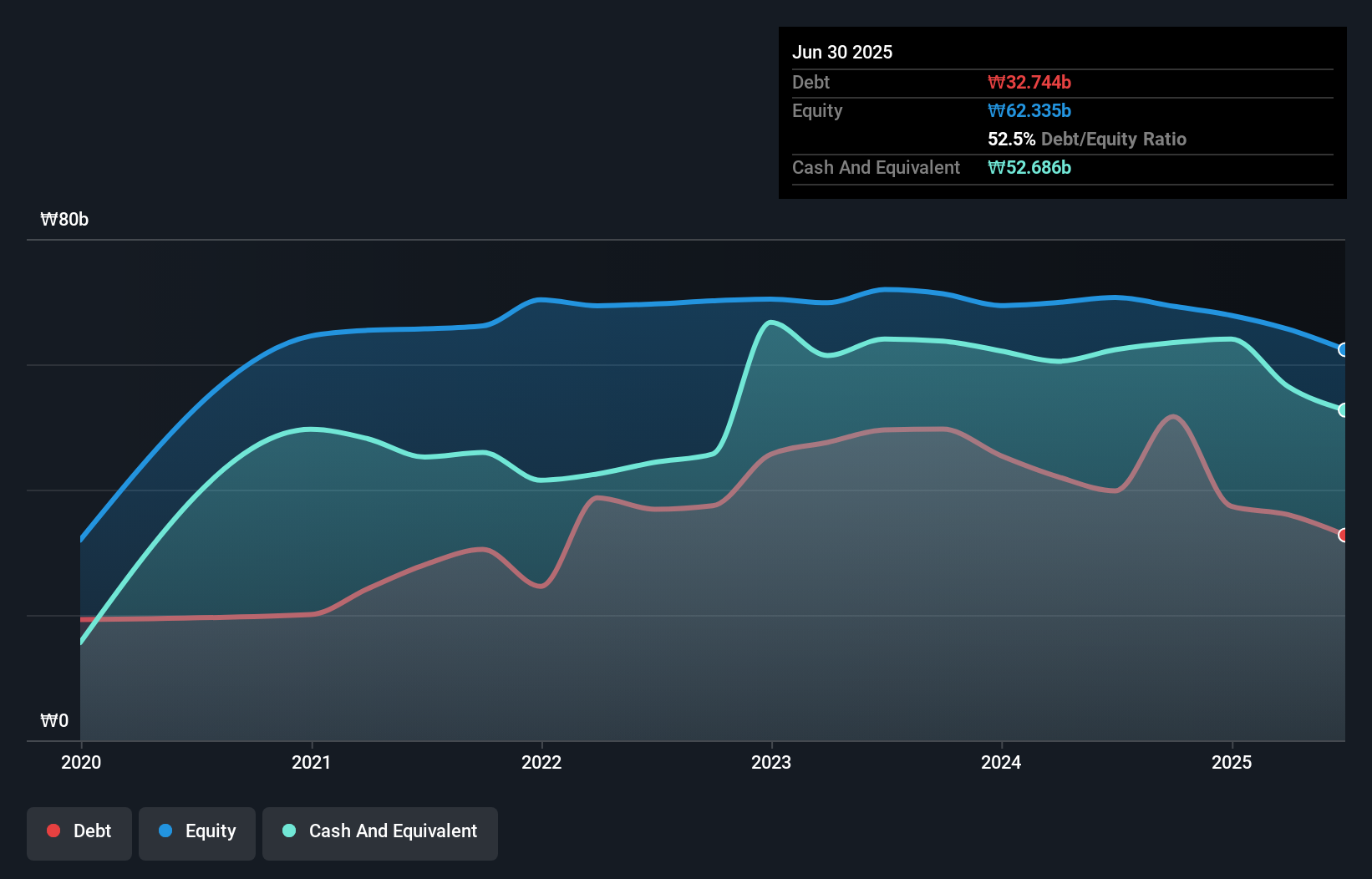- South Korea
- /
- Electrical
- /
- KOSDAQ:A288620
S-Fuelcell (KOSDAQ:288620) Has Debt But No Earnings; Should You Worry?
Howard Marks put it nicely when he said that, rather than worrying about share price volatility, 'The possibility of permanent loss is the risk I worry about... and every practical investor I know worries about.' So it might be obvious that you need to consider debt, when you think about how risky any given stock is, because too much debt can sink a company. Importantly, S-Fuelcell co., Ltd. (KOSDAQ:288620) does carry debt. But the more important question is: how much risk is that debt creating?
What Risk Does Debt Bring?
Debt assists a business until the business has trouble paying it off, either with new capital or with free cash flow. If things get really bad, the lenders can take control of the business. However, a more usual (but still expensive) situation is where a company must dilute shareholders at a cheap share price simply to get debt under control. Of course, plenty of companies use debt to fund growth, without any negative consequences. When we think about a company's use of debt, we first look at cash and debt together.
What Is S-Fuelcell's Debt?
As you can see below, S-Fuelcell had ₩32.7b of debt at June 2025, down from ₩39.8b a year prior. However, its balance sheet shows it holds ₩52.7b in cash, so it actually has ₩19.9b net cash.

A Look At S-Fuelcell's Liabilities
We can see from the most recent balance sheet that S-Fuelcell had liabilities of ₩46.6b falling due within a year, and liabilities of ₩2.05b due beyond that. Offsetting these obligations, it had cash of ₩52.7b as well as receivables valued at ₩6.84b due within 12 months. So it actually has ₩10.9b more liquid assets than total liabilities.
This surplus suggests that S-Fuelcell has a conservative balance sheet, and could probably eliminate its debt without much difficulty. Succinctly put, S-Fuelcell boasts net cash, so it's fair to say it does not have a heavy debt load! There's no doubt that we learn most about debt from the balance sheet. But it is future earnings, more than anything, that will determine S-Fuelcell's ability to maintain a healthy balance sheet going forward. So if you want to see what the professionals think, you might find this free report on analyst profit forecasts to be interesting.
View our latest analysis for S-Fuelcell
Over 12 months, S-Fuelcell made a loss at the EBIT level, and saw its revenue drop to ₩21b, which is a fall of 35%. That makes us nervous, to say the least.
So How Risky Is S-Fuelcell?
Although S-Fuelcell had an earnings before interest and tax (EBIT) loss over the last twelve months, it generated positive free cash flow of ₩2.8b. So taking that on face value, and considering the net cash situation, we don't think that the stock is too risky in the near term. With mediocre revenue growth in the last year, we're don't find the investment opportunity particularly compelling. When analysing debt levels, the balance sheet is the obvious place to start. But ultimately, every company can contain risks that exist outside of the balance sheet. We've identified 1 warning sign with S-Fuelcell , and understanding them should be part of your investment process.
If you're interested in investing in businesses that can grow profits without the burden of debt, then check out this free list of growing businesses that have net cash on the balance sheet.
New: Manage All Your Stock Portfolios in One Place
We've created the ultimate portfolio companion for stock investors, and it's free.
• Connect an unlimited number of Portfolios and see your total in one currency
• Be alerted to new Warning Signs or Risks via email or mobile
• Track the Fair Value of your stocks
Have feedback on this article? Concerned about the content? Get in touch with us directly. Alternatively, email editorial-team (at) simplywallst.com.
This article by Simply Wall St is general in nature. We provide commentary based on historical data and analyst forecasts only using an unbiased methodology and our articles are not intended to be financial advice. It does not constitute a recommendation to buy or sell any stock, and does not take account of your objectives, or your financial situation. We aim to bring you long-term focused analysis driven by fundamental data. Note that our analysis may not factor in the latest price-sensitive company announcements or qualitative material. Simply Wall St has no position in any stocks mentioned.
About KOSDAQ:A288620
S-Fuelcell
S-Fuelcell Co., Ltd. provides fuel cell systems, hydrogen generation systems, and fuel conversion devices.
Mediocre balance sheet with concerning outlook.
Market Insights
Community Narratives



